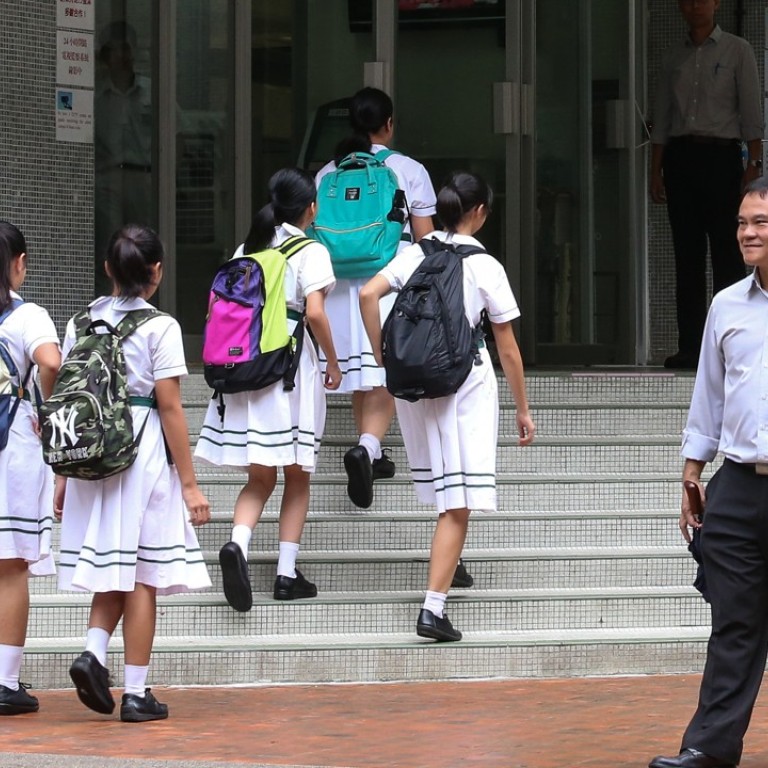
Letters to the Editor, December 12, 2017
Youngsters must be more independent
So often youngsters look at things only from their own perspective and seldom think of the feelings of others. This can cause a lot of problems and lead to disagreements.
Students also must learn to be more independent, instead of relying on their parents for every little thing. So often I feel that they are incapable of dealing with problems that, with a bit of thought, they could actually solve for themselves.
Learning to be independent will stand them in good stead in their working lives and enable them to function more successfully in society.
Young people also need to be able to manage their time efficiently, something many struggle to do as they spend far too long on their smartphones. Some of them even fail to get a good night’s sleep because they stay online until late. Young people must learn the importance of good time management.
Marco Chan Hey-yin, Lohas Park
Workload for children can be excessive
This lack of leisure activities can often be due to overbearing parents who put too much pressure on their children.
Often after the school day they have to attend extracurricular activities that may not interest them, or tutorial classes. And after all that they still have to do their homework. Parents need to realise that students should only be signed up for extracurricular activities if the children are keen on them and if the classes will see them engage in hobbies that they find enjoyable. But forcing them on children is counterproductive. And if they have too many tutorial classes, it can make their workload excessive.
Pupils need to be given more freedom to choose what they want to do after the school day ends. If they express an interest in a hobby, then parents should sit down and discuss it with them. They need to be given space to follow their own interests, and to relax and play.
One of the most effective ways to help children learn is to make sure they have a happy childhood, so they can learn and explore at their leisure.
Adam Ng, Kwun Tong
Government should monitor sale of malls
When the Link Reit took over these malls, many of which are frequented by public housing tenants, they had many retailers offering products of daily use at affordable prices.
However, in the name of “enhancing” facilities, many of these tenants were gradually replaced by high-end retailers, paying higher rents and charging more for products.
People complain that popular local shops have disappeared. The Link has already sold 28 malls in public housing estates over the past three years. Now it wants to sell 17 malls for HK$23 billion.
Public housing tenants are worried about rising prices of essential commodities at these malls. The government should at least monitor the proposed sale and should ensure that there is complete transparency. Details of negotiations with the buyers, led by Gaw Capital Partners, should be made public.
The government of Hong Kong should also set a rent cap at malls, taking into account the rate of inflation. Low-income families cannot afford the prices at high-end malls.
Heidi Yip, Tseung Kwan O
Look beyond all the product launch hype
An enormous amount of interest is generated in Hong Kong and globally whenever a new model of Apple’s iPhone is released to the market.
However, people mostly focus on the product and do not look at other aspects, such as how and where it is made.
There have been complaints in the past about long shifts or underage workers at the factory in mainland China where iPhones are made by the Foxconn Technology Group.
While Apple has dealt with labour-related complaints in the past, it is important that it keeps tight controls on the manufacturing process.
The central government should also monitor the plant and ensure the workers are satisfied with their conditions.
Heidi Chu Hoi-ying, Kwai Chung
It is possible to become much smarter city
I think political conflicts have slowed down technological development in Hong Kong, which is one reason we are trailing Singapore in the smart city rankings.
Filibusters have made it difficult for the Hong Kong government to get approval for policies which would lead to IT advances in the city.
Also, there is not enough focus on IT studies in schools. Young people in the city should be encouraged to think about careers in the IT sector.
Moreover, the government needs to invest more in this sector to raise the city’s profile.
Therefore, I welcome the government initiative on creating a smart city blueprint.
Governments in other countries and cities have already done this, but it is good that the Hong Kong administration is finally acting. I am sure that it can soon become a smart city, like Singapore.
Wesley Leung, Tuen Mun

